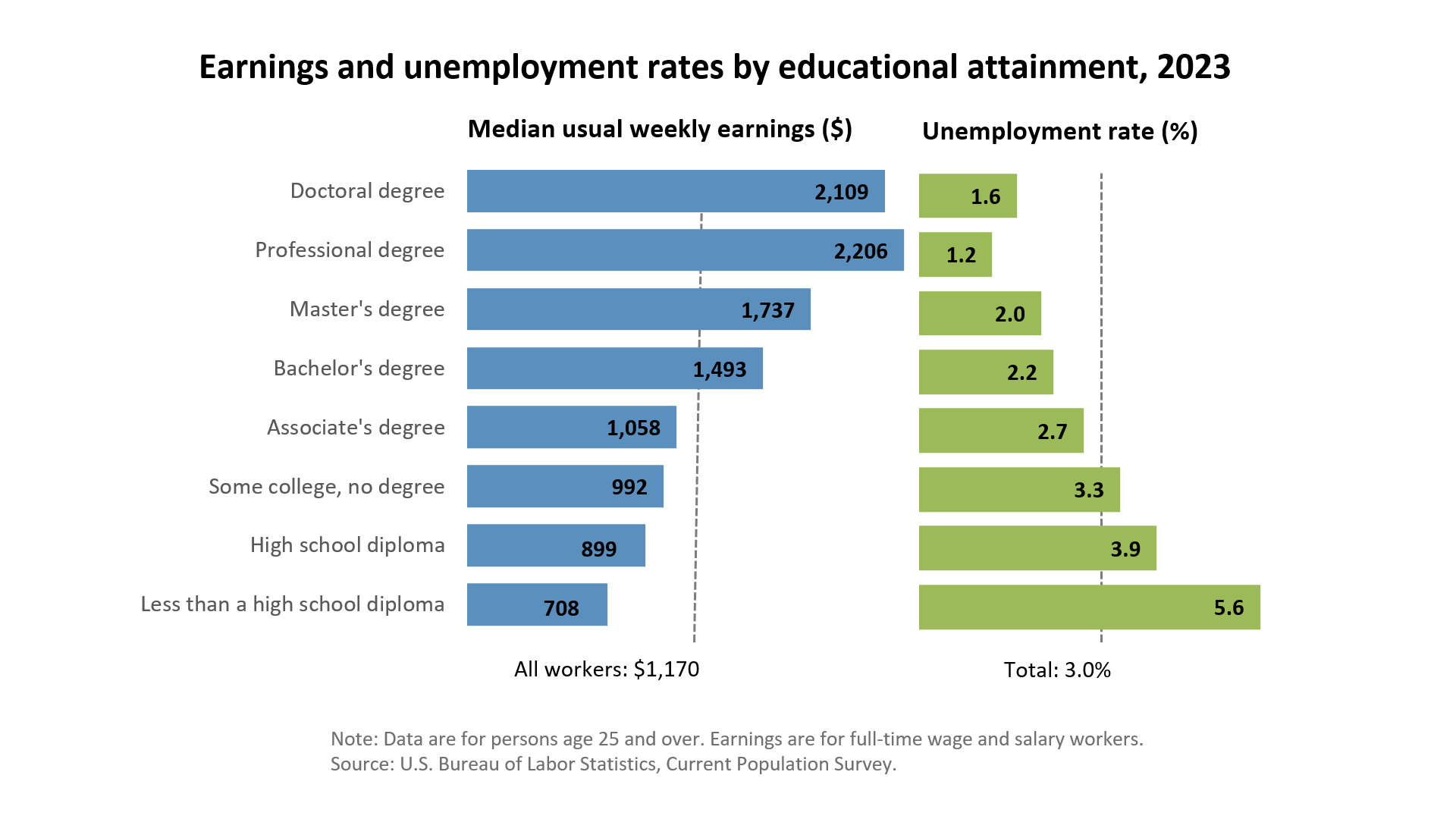"Why should I study so hard when you hold a college degree, work hard all your life and see what happened to you?"
This claim is hard to argue against because you are struggling with that question yourself. Consider everything you have, right now, because you went to college and worked hard. Consider the opportunities you took, and even the ones you didn't. I know if I hadn't gone to college, I wouldn't have my current friends, family, car.. just about everything.
Your son would never admit it, and might not even know it, but he is probably scared. He sees you, a role model, work so hard and be successful, and then suddenly you are unemployed. Subconsciously he might be thinking, "If you can't get a job, why would I be able to? What if I can't get a job either? What if I go to college and put in all that hard work for nothing? Why would that be worth it?"
He may have asked in a negative way, but it is a valid question. What would you tell him, if he voiced the words in bold instead of saying it the way he did the first time?
My answer: Even with what happened to me(losing my job), I would do it all again. For the reasons I gave above, but also because college is an experience which teaches you what you are capable of and guides you towards what you'd like to do with your life. Being jobless is only temporary. I still have my degree. Sure, it's possible that I struggle to find a job, but I am much better off for having gone to college than I would be otherwise.
That argument means nothing if your son's goals don't involve going to college. I have known people who basically want to spend their life spending the minimum effort in order to have a place and just enjoy themselves otherwise. Ask him what his goals are, but if he isn't sure then college is a great place to go while figuring it out. The alternative is starting on a job now. If he's smart, he could probably work up to being a retail manager within 2-10 years. There's nothing wrong with that, if that is what he is happy with.

 (From US Bureau of Labor Statistics)
(From US Bureau of Labor Statistics)